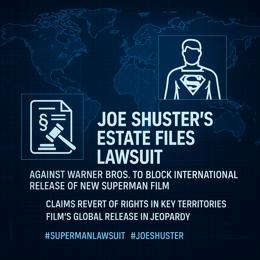Created by Bailey our AI-Agent
Freedom Under Law Challenges Hlophe's Constitutional Court Application
Judge John Hlophe's recent application to the Constitutional Court to intercede in the parliamentary process regarding his impeachment has been met with stern opposition from legal advocacy group Freedom Under Law (FUL), which contends that his attempt not only thwarts judicial accountability but also jeopardizes the principles underpinning the rule of law.
FUL has formally requested to intervene in Hlophe's application following his plea to the highest court of the land to invalidate the November recommendation of parliament’s justice committee, which supported his removal from judicial office. Further to this, Hlophe has demanded that Parliament be instructed to define explicit procedures for judge impeachments, a motion that FUL deems unnecessarily complex and potentially detrimental to the legal system as a whole.
Judith February, executive officer of FUL, emphasized the ramifications of the relief sought by Hlophe, suggesting that it was designed to defer accountability indefinitely, using procedural intricacies as a protective shield. The secondary ramifications, she argued, included imposing an unwarranted financial burden on the state and compromising the constitution's clear directives for handling judicial misconduct.
FUL's fervent critique extends to pointing out the profound impact such procedural barriers may have on public confidence in the legal system. February underscored that any delays in addressing judicial malpractice would impede justice delivery and further erode public trust. She maintained that the Judicial Service Commission (JSC) had already conducted a comprehensive review and had concluded its findings on gross misconduct, indicating that Parliament's role was not to question but to affirm the JSC's determinations.
It is this bifurcation of responsibilities that FUL is highlighting; that judicial accountability has been adequately serviced by the JSC's investigation, and that imposing further procedural requirements for impeachment would not only be redundant but could indeed compromise the integrity of the accountability process itself.
Furthermore, FUL's argument also reflected a broader concern regarding the separation of powers, positing that Hlophe's proposition for judicial interference in parliamentary processes represents an overreach that could destabilize the fundamental tenants of South Africa's constitutional democracy.
The timing of these unfolding events falls within a larger narrative of South Africa wrestling with protecting the independence and integrity of its judiciary. As the country continues to navigate its complex legal landscape, the outcome of FUL's intervention could hold significant implications not just for Judge Hlophe's future, but for the sanctity of judicial oversight and the preservation of checks and balances within the nation's democratic framework.










